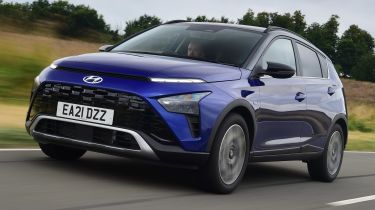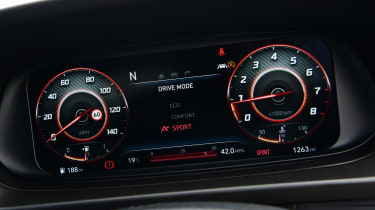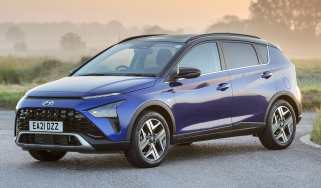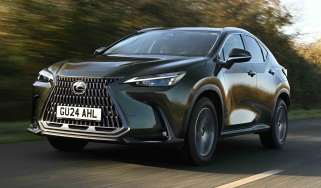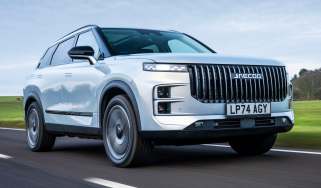Hyundai Bayon review - MPG, CO2 and running costs
Mild hybrid tech means the Bayon should be cheap to run, while residual values are strong

The Hyundai Bayon should be cheap to run as the only engine available is a frugal 1.0-litre mild-hybrid petrol unit with either 99bhp or 118bhp. The mild hybrid system uses a 48v battery pack with a capacity of 1.56kWh along with a starter-generator. This set-up regains charge from the wheels as you slow down and uses it to give a small boost to the engine, mainly for efficiency. It’s nothing like a full hybrid or plug-in hybrid - it feels identical from behind the wheel to a non-hybrid car. It’s just good to know there’s modern tech at play to keep efficiency as high as possible.
Hyundai claims that both the 99bhp and 118bhp models should return up to 53.3mpg on the WLTP combined cycle, with CO2 emissions from 119g/km to 121g/km.
Another bit of tech that helps with efficiency is the e-clutch that uses an electronic system to engage the clutch instead of a mechanical link. This helps to reduce wear and should mean the clutch lasts longer - though this won’t matter to new buyers unless they’re planning to keep the car for a long time.
Insurance groups
Entry-level automatic Bayons sit in group 13 for insurance, so while they’re not ultra-cheap considering it’s a 1.0-litre engine with under 100bhp, costs shouldn’t be too bad. The manual is actually in group 14, but that won’t affect premium prices too much.
Move up to a Premium model with the 118bhp engine and the insurance group rises to 16 with both gearboxes, and the top-spec car sits in group 18.
Depreciation
Residual values are pretty decent for the Bayon, with expert data suggesting that it should hold onto an average of 55 per cent of its original value after a typical three-year/36,000-mile ownership period. The Ford Puma fares a little better with 58 per cent retained over the same three-year period.
